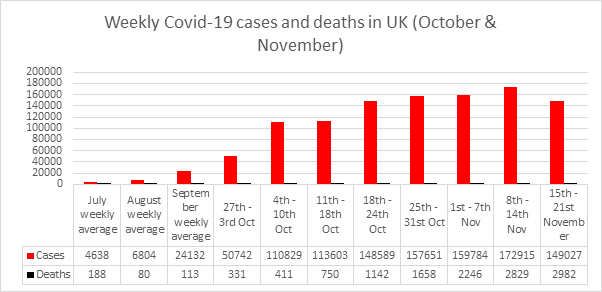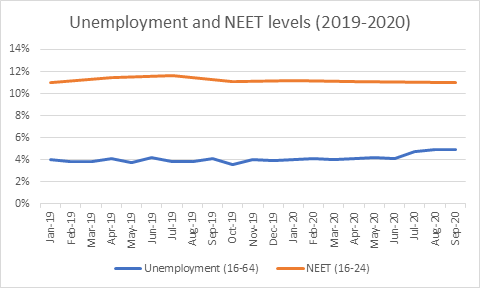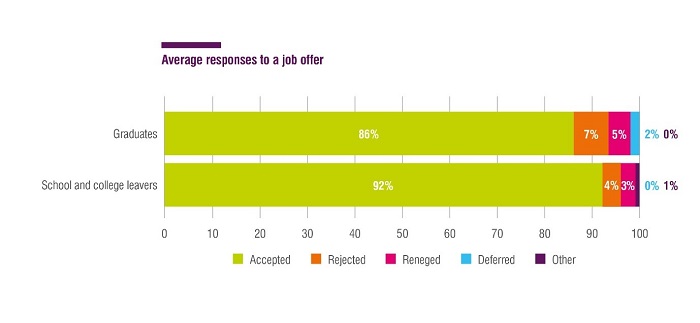This is the thirty-fifth of a series of bulletins produced by ISE to update members on key data and policy on Covid-19. This covers the period 19/11/2020-25/11/2020.
You can access all of the Covid-19 bulletins on ISE insights.
Latest Covid-19 data

Data taken from Wikipedia and from the government’s Covid-19 dashboard.
The UK has now had over 1.5 million identified Covid-19 cases and 66,713 deaths (with Covid on the death certificate). The R rate is estimated to be between 1 and 1.1 with the daily infection rate growing by 0-2%. The UK’s second wave appears to be peaking although the number of deaths has continued to increase.
Covid news
The lockdown appears to be working in reducing the number of cases in England. The government have confirmed that it will come to an end next week, with the country then re-entering the tiered lockdown scheme and most people expected to be in tier 2 or 3.
The news on vaccine trials continues to be positive with new findings on the Oxford trial. The NHS is preparing for mass vaccinations from the start of December (although early 2021 is more likely). The Guardian have produced commentary on what needs to happen before the vaccines are ready.
Regardless of how bad things have been in the UK, reports from Denmark of Covid-riddled, slaughtered mink rising from the dead, remind us that there is always someone worse off!
Education
The poorest pupils have suffered most during Covid. Teenagers discuss how they coped during lockdown.
The impacts of Covid on universties are still being ascertained. They clearly include an impact on student mental health. Staff are being asked to test students for Covid before the end of term.
The economy
- Rishi Sunak says that the Covid economic emergency has only just begun. The Office for Budget Responsibility has produced detailed forecasts on the UK’s likely economic performance. They admit the situation remains volatile but the most likely scenario suggests that that pandemic will cause permanent scaring on the economy.
- The Chancellors decision to introduce a public sector pay freeze has led to debates about whether the UK is returning to austerity. Stephen Bush, says, yes it is.
- The governor of the Bank of England has warned that a no-deal Brexit will cost more than Covid to the UK economy.
- The Institute of Prosperity call for a renewed focus on manufacturing following Covid.
- Some businesses have used the pandemic as an opportunity for renewal.
The labour market

This figure uses data from the Office for National Statistics to set out the proportion of the working population who are unemployed and the proportion of young people who are Not in Education, Employment or Training (NEET). Both datasets are only able to provide insights up until September and so far suggest that NEET levels have remained stable, probably due to the large number of young people who have stayed in education, and that unemployment is starting to rise, but remains relatively low for now.
- The government are launching more support for unemployed workers.
- The number of unemployed older workers is going up. The NCFE podcast looks at the situation for adult jobseekers in more detail.
- Research suggests that work has become harder during the Covid crisis.
The student labour market

Data taken from the ISE recruitment survey which shows that during 2019/2020 students were highly likely to accept the jobs that they were offered.
- Politicians need to rethink their ideas about graduate success in the light of new research from CRAC and ISE.
Student recruitment and development
- Graduate recruitment is changing argues Tristram Hooley. Mike Grey picks this up with a particular focus on employer engagement. ISE reports on how employers have changed their recruitment during Covid, while Linklaters discuss their move to virtual internships.
- Where now for apprenticeships?
- What young people are looking for in a graduate job.
- Graduate recruitment: A letter from Malaysia.


0 Comments